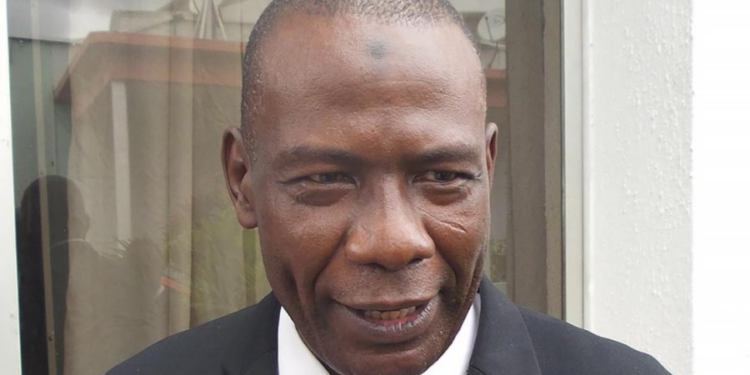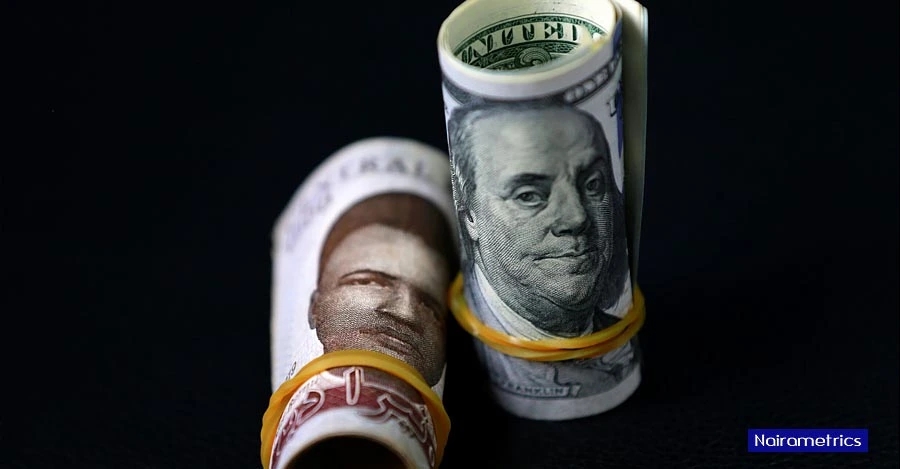The Association of Bureaux De Change Operators of Nigeria (ABCON) has called on the Federal Government to ban the operations of Binance in the country.
This followed the association’s identification of Binance as one of the major factors putting pressure on the naira.
According to NAN, this advice was given by the President of ABCON, Alhaji Aminu Gwadebe, during an interview on Tuesday in Lagos.
Binance is a global online exchange where users can trade cryptocurrencies on a daily basis. It supports hundreds of the most commonly traded cryptocurrencies.
Binance the most liquid market
Gwadebe, who said that Binance trading is becoming the anchorage of the Investor and Exporters window and the parallel market, noted that the exchange is the most liquid market with 1.2 million transactions per second.
- He said, “If you know about Binance, you will know that Binance trading is becoming the anchorage of both the investors and exporters window and the parallel market, which is unfortunate.
- “So, we have to do something that can stop Binance. It’s a competition; we need to ban Binance and the only way to do so is if you have liquidity.
- “As I speak, Binance is the most liquid market; they do 1.2 million transactions per second. So it’s a very liquid market but that is not a scary status, we can break it through our local content and peculiarities.”
The ABCON president noted that optimism was giving way to pessimism in the present foreign exchange market situation.
Gwadabe said that when pessimism overrode the psychology of the market, it would lead to a loss of confidence by citizens, saying that was key in every currency of every nation.
- He said, “So we are seeing a scenario where optimism is giving way to pessimism; investors are not coming, Nigerians don’t have confidence in the market and we have to look for external finances that are coming in as a quick fix.
- “There is a lot of pressure on the naira, from foreign exchange hoarding by the banks and oil companies.
- ”Is it Nigerians that want to pay school fees, round-tripping, speculations, among others. All these galvanised to put pressure on the naira.
- “Spike and volatility did not start now, it’s something the present government inherited and has gone a long way in checkmating illegal behaviours around foreign exchange market and that is the objective of the unification.’’
CBN expects remittances from NNPC
Gwadabe expressed hope that with the petrol subsidy removal, the Central Bank of Nigeria would be able to see remittances from the Nigerian National Petroleum Corporation (NNPC) saying when the subsidy began, the remittance to CBN from NNPC was zero.
This, he said, would also allow the apex bank to have liquidity and inflows that would come in for them to be able to defend the naira.
He said If we have a friendly, competitive and transparent system, more investors would want to come to the market.
- The ABCON boss, ”So, for us to succeed, there must be liquidity. Countries that adopt floating exchange are countries that have heavy reserve and balance of payment to fall back on.’’
He urged the National Assembly to come up with legislation that would protect investors in the market.
No comprehensive list of revoked BDC licences
On revocation of licences of 2,698 BDCs by CBN, Gwadabe discredited the report saying, “as far as I’m concerned that list was not correct and still not confirmed.
- He said, “The CBN has yet to come out with their comprehensive list. Yes, CBN is reviewing the BDC register with a view to reducing the number but as of now, there is no official list that proscribes or says these are the licensed or unlicensed.
- “So the statuesque remains the same.’’
The ABCON president said the association had engaged with CBN and had been advised to sensitise its members to know the conditions guiding their operations and their obligations which was to render returns to CBN.
What you should know
- In a related development, the BDC operators had earlier last month advocated for increased participation and involvement in the foreign exchange market to ensure the success of the new exchange rate policy implemented by the Central Bank of Nigeria (CBN).
- They expressed dissatisfaction with the CBN’s decision to abolish segments of the official forex market in favour of the I&E window, where the “willing buyer and willing seller” approach was reintroduced.
- These operators argue that the CBN should collaborate with them, considering that they play a critical role in addressing the retail end of the market and ensuring exchange rate stability in the country’s economy.
- Aminu Gwadebe had in a chat with Nairametrics, stated that despite the new exchange rate policy by the CBN, the foreign exchange market remains volatile because BDCs are excluded from the I&E window.


















I don’t buy into these cheap and diversionary blame games; first it was Aboki fx, and now it’s Binance. The government should rather be advised to formulate and genuinely implement policies that would sustainably increase the country’s balance of payments which is currently negative, and to stop overly relying on quick fixes like foreign portfolio investments aka hot money which can disappear as quickly as it comes, as we’ve seen in recent past.
Lol 🤣 so Binance is now their problem.
Let them ban Binance and let’s see how it goes.
Banning BINANCE won’t stop Nigeria users using it unless Binance stop operation and accepting Nigerians.
Nigerians won’t stop trading crypto with or without Binance.
If they ban Binance operation in Nigeria we will move to another exchange.
Spoiler: You cannot ban Binance P2P.
But you can ban Binance from banking with any bank in Nigeria – this the CBN did long ago, resulting in the astronomical growth of P2P.
Focus on the real issues, y’all.
Not looking for sacrificial lambs all in the name of lobbying for your miserable Bureaux de Change association.